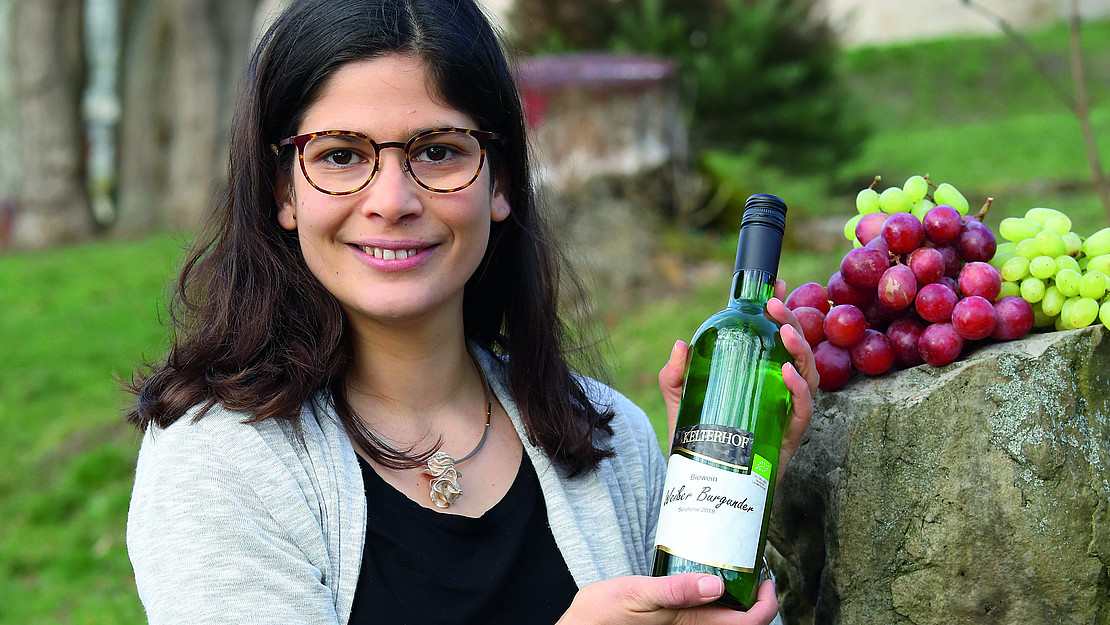This page contains automatically translated content.
"The subject of wine has been with me all my life".
 Image: Andreas Fischer
Image: Andreas Fischer"Sustainability, organic farming, conscious nutrition: these are buzzwords that hit the zeitgeist. More and more people are attaching importance to where food comes from and how it is produced. This also applies to wine. At least, if surveys of consumers are anything to go by. There, the willingness to buy organic wine is high. The reality, however, looks different: In fact, wine lovers mostly reach for conventional products. In my doctoral thesis, which was awarded the prize for the best dissertation in agricultural economics in 2019 by the Society for Economic and Social Sciences (GEWISOLA), I documented and analyzed this attitude-behavior gap.
The topic of wine has been with me all my life. My parents run a small organic winery in Baden-Württemberg. So from cultivation to working in the cellar to bottling, I am very familiar with all aspects of winemaking. During my studies in wine business administration at the University of Applied Sciences in Heilbronn, I focused on wine marketing, and my master's degree in Giessen was in nutrition economics. In my current job at the University of Kassel, I am able to combine these areas. As a research assistant in the Department of Agricultural and Food Marketing, consumer research, wine economics and household panel analyses are among my main research interests.
Which factors influence the buying behavior of organic wine? I have dealt intensively with this question in my dissertation. To do this, I first compared theoretical purchasing behavior and actual purchases. This was possible with a data set from the Gesellschaft für Konsumforschung (GfK), which included 30,000 German households. In a second step, I analyzed possible reasons that prevent consumers from buying organic wines.
My study yielded several interesting findings. First, there is a large gap between the desire to buy organic wine and the actual purchase. That's because, according to the data, organic wine accounts for only a small percentage of wine consumption. What is the reason for this? Probably because of the lack of choice. Many wine lovers attach importance to specific countries of origin and grape varieties, and here the product variety is still very small.
In addition, the price of organic products, which is much higher than that of conventional products, is a barrier to purchase for some customer groups.
The fact that my study was so well received and even received an award shows how important my findings are for the wine industry, but also for all producers of sustainable food. Moreover, the good response is a motivation for further research projects in the field of sustainable consumption."